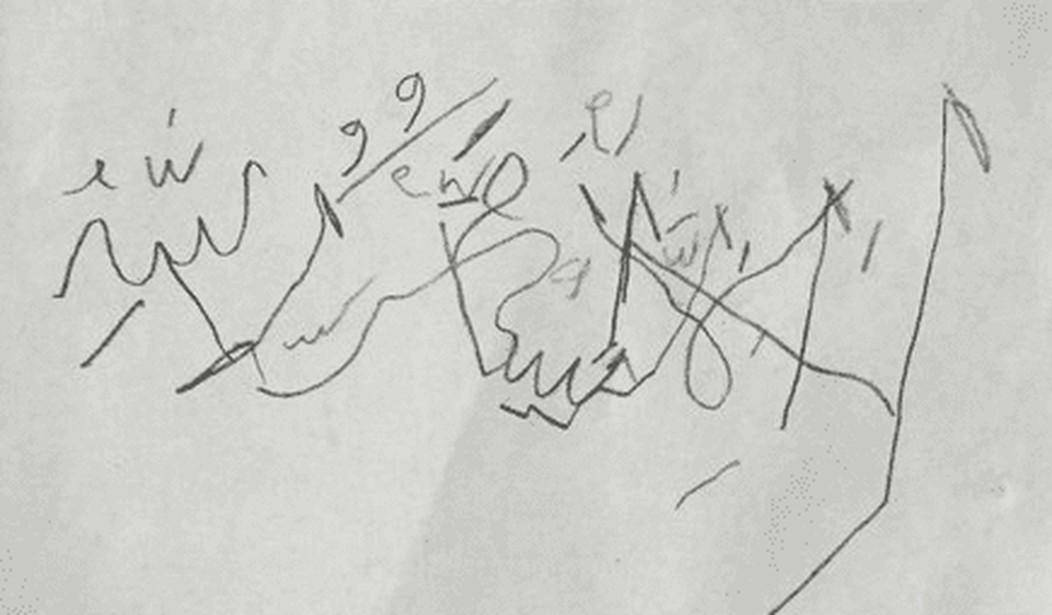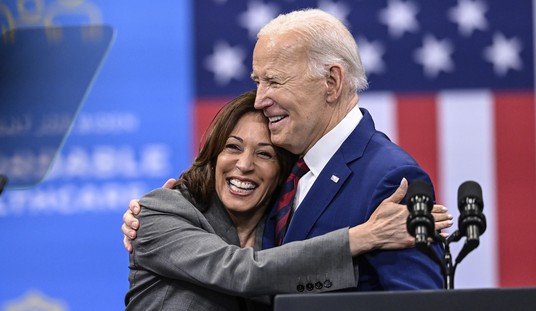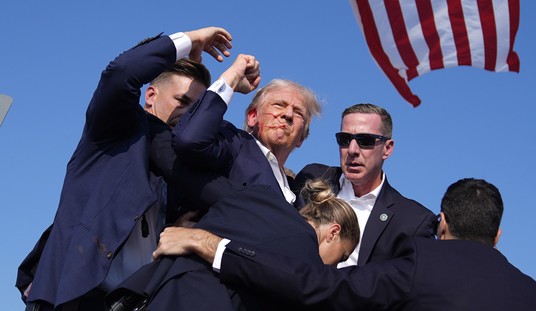Imagine a public high-school teacher assigning this world geography lesson as a way to educate her students about the religions of Judaism and Christianity:
Here is an excerpt of Exodus 20 that includes two of the Ten Commandments, written in Hebrew. In the space below, try copying the image by hand. This should give you an idea of the complexity of ancient script.
The teacher doesn’t bother to tell her students (or their parents) that this particular section of the Holy Bible says “I am the LORD thy God” and “Thou shalt have no other gods before me.” The class includes Muslims and atheists.
That scenario is pure fantasy. It could never happen in 21st-century America, where religious schools can no longer pray before football games and the Ten Commandments can’t even withstand an assault in the Bible Belt.
Now imagine the teacher tweaking the assignment. Instead of using the Bible to showcase ancient script, she uses the Koran to demonstrate calligraphy. She picks the Islamic statement of faith, called the shahada, as her example. This wins her the full support of school administrators and resounding endorsements from journalists and activists.
That storyline is not the least bit fantastical. It actually happened last week in rural Virginia, and the calligraphy lesson created such a furor that fearful officials closed schools and canceled extracurricular events on Friday.
Cheryl LaPorte, a teacher at Riverheads High School in Augusta County, triggered the controversy with a calligraphy lesson built around the Islamic statement of faith, one of the five pillars of Islam. The students had no idea that they were writing “there is no god but Allah” and “Muhammad is the messenger of Allah” – or that reciting those words is a key step toward converting to the religion.
When some of their parents learned about it, they complained – and then rallied both online and offline. “If my truth cannot be spoken in schools,” organizer Kimberly Herndon said, “I don’t want false doctrine spoken in schools. That’s what keeps it even across the board.”
School superintendent Eric Bond defended LaPorte, noting that she uses similar exercises to teach about other regions of the world as well. He insisted that the lessons are not “an attempt at indoctrination to Islam or any other religion.”
He may well be right about that, but parents who put their children in public schools have reason to be skeptical when Islam is making subtle inroads into classrooms. Just a month ago in California, another teacher landed in trouble when she wrote lyrics promoting Islam to the tune of “Fight Song” and had her students sing it.
Although school officials there quickly apologized, the controversy prompted Fox News’ Todd Starnes to repeat his warning of “a stealth academic jihad.”
Last week’s story in Virginia went national when Starnes covered it, but instead of apologizing, school officials circled the wagons. Their response eventually split the community. The teacher LaPorte is now being portrayed as the victim of intolerant Christians, and school officials stoked fear by closing the schools and making vague pronouncements about “a risk of harm.”
Protests on behalf of the teacher apparently count as awesome displays of free speech in Augusta County, but the threat of “significant protests on or near school property” by her critics demand extreme action.
The Daily Progress in nearby Charlottesville, Va., implied as much in an editorial that came down on the side of the school. It decried the backlash against LaPorte as “a sad and disappointing episode in the county’s history” and praised her supporters for defending “educational freedom.”
Meanwhile, the school quietly backed down on the central point of contention. Virginia Education Department spokeswoman Michelle Stoll made the obvious point that state standards don’t require the use of religious doctrine to teach calligraphy, and Augusta County assistant superintendent Doug Shifflett reluctantly agreed.
“A different, non-religious sample of Arabic calligraphy will be used in the future,” he said in a statement.
There, that wasn’t so hard now, was it? And if the school had followed the example of California educators after the first complaint instead of rallying around a teacher who exercised poor judgment, this molehill never would have become a mountain.










Join the conversation as a VIP Member